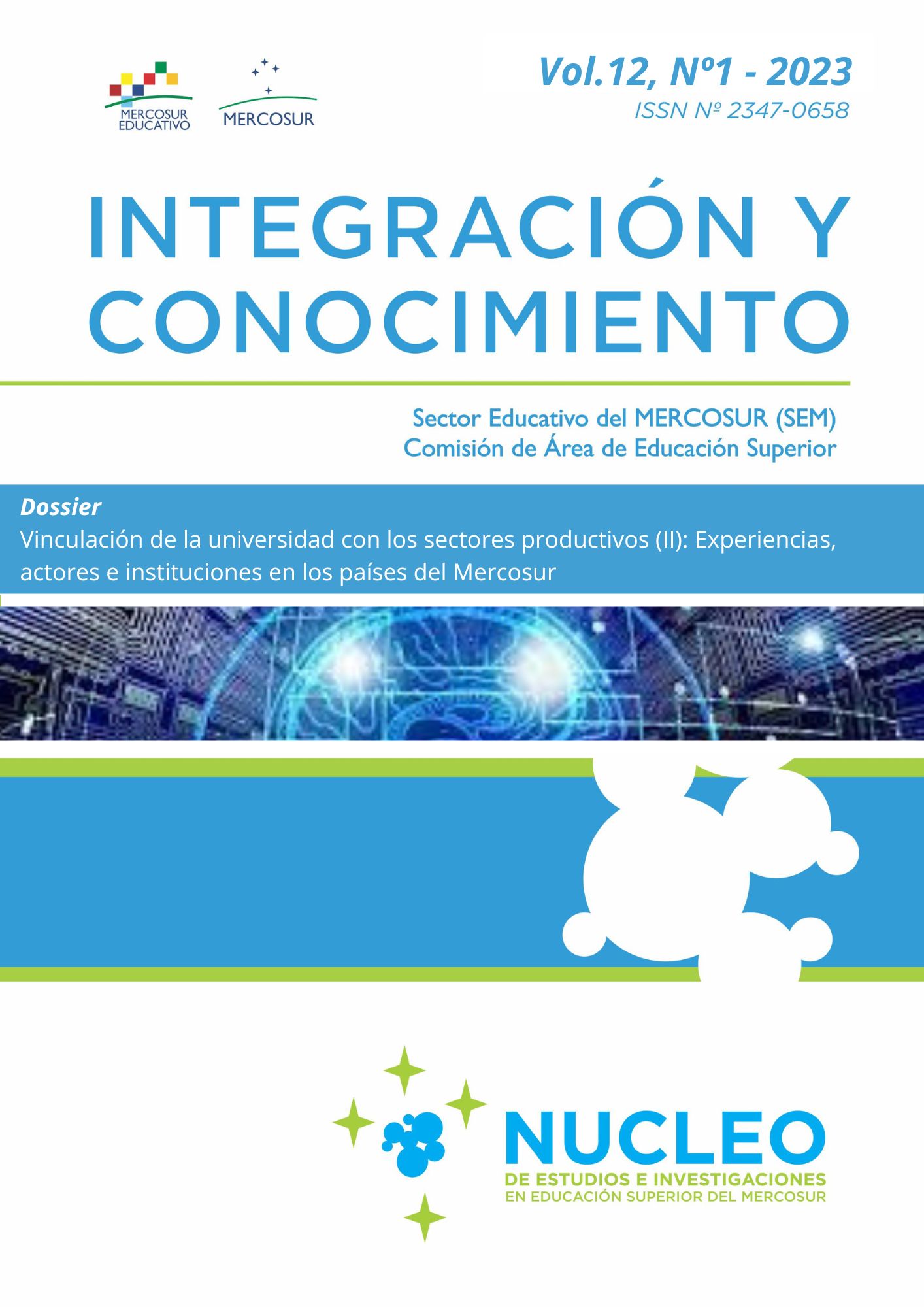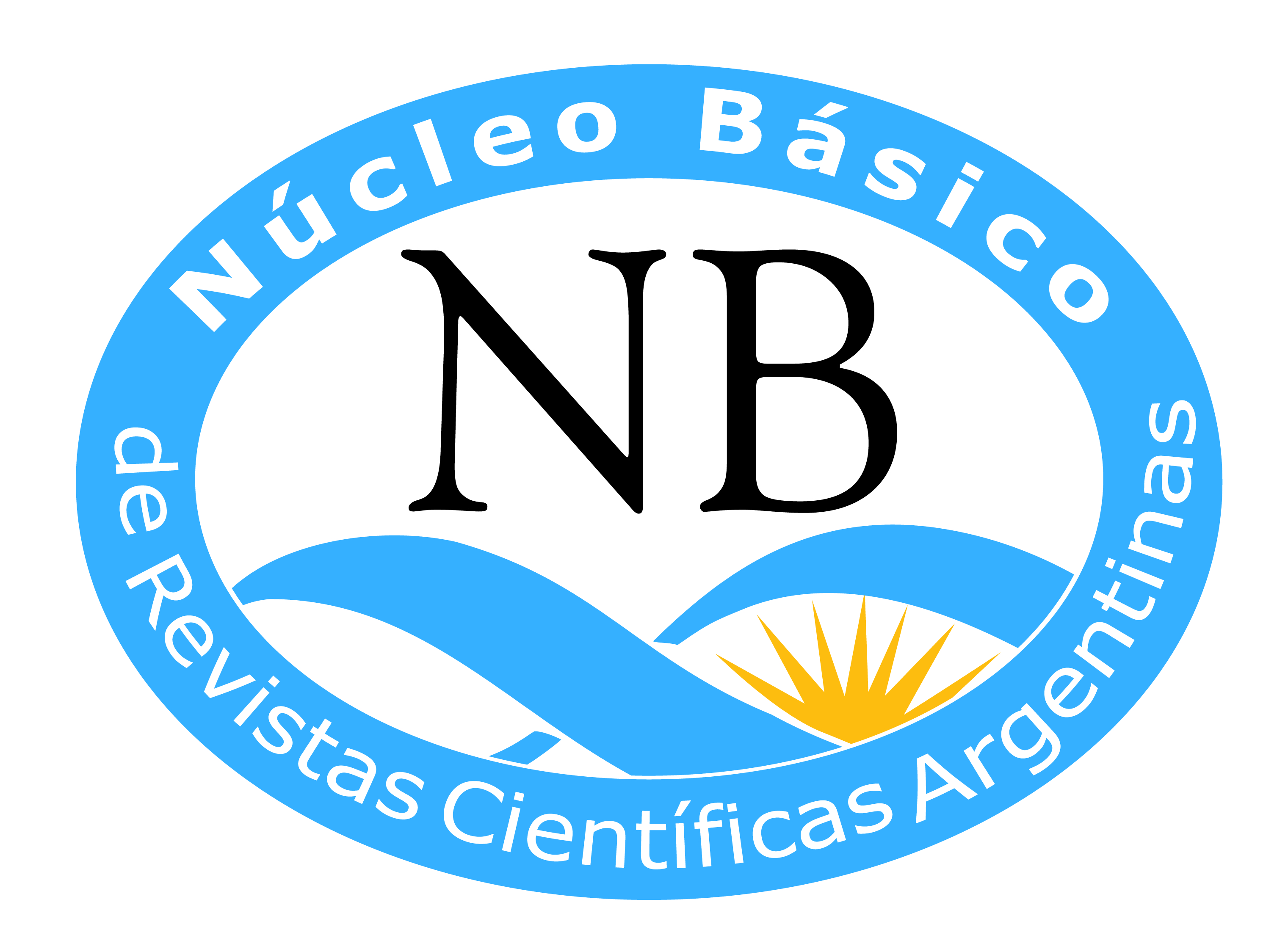Learning from linkages at the National University of Cordoba: the experience of the “Academy-Industry Meetings”
DOI:
https://doi.org/10.61203/2347-0658.v12.n1.40076Keywords:
Linkage. Companies. Scientific Sector.Abstract
He generalized awareness that knowledge is co-constructed among actors and in a systemic way, progressively promotes a greater number of initiatives aimed at generating spaces for articulation and exchange. Within this framework, universities are redefining their roles as institutions of intersectoral convergence. In recent years, the National University of Córdoba has been working on it, implementing successive actions that allow it to envision challenges and opportunities for intervention. The objective of this paper is to describe a particular experience, associated with the development of an event named Industry-Academy Meetings. What happened before and after the event shows how enriching it can be to capitalize the knowledge acquired, the existing challenges associated with the culture of linkage and the importance of sustaining initiatives over time. It is hoped that the article will contribute to further reflection on this institutional aspect of technology management.
Downloads
References
Agencia Córdoba Innovar y Emprender. (s.f.). Programa Córdoba Vincula. Gobierno de la Provincia de Córdoba, Argentina. Recuperado el 19/12/2022 de: https://innovaryemprendercba.com.ar/programacordobavincula/#:~:text=Objetivo%20general,conocimiento%20y%20las%20nuevas%20tecnolog%C3%ADas
Barney, J. (1996). Gaining and sustaining competitive advantage. Reading: Addison-Wesley Publishing
Chesbrough, H. (2003). Open Innovation: The New Imperative for Creating and Profiting from Technology. Boston, MA. 1ra Ed. Harvard Business School Press.
Etzkowitz, H. (1997) The Triple Helix: academy-industry-government relations and the growth of neo-corporatist industrial policy in the U.S. S.En Campodall’Orto S. (ed.) Managing Technological Knowledge Transfer. Bruxelles: EC Social Sciences COST A3. Vol 4. EC Directorate General. Science. Research and Development.
Howells, J. (2006). Intermediation and the role of intermediaries in innovation. Research Policy, 35(5), 715–728.
LISTO Project. (s.f.). Proyecto LISTO. Recuperado el 30/09/2022 de: https://listoproject.eu/es/inicio/
Lundvall, B-A (1988), Innovation as an Interactive Process: From User-Producer Interaction to the National System of Innovation. En G. Dosi, C. Freeman, R. Nelson, G. Silverberg & L. Soete (Eds.), Technical change and Economic Theory. London: Pinter.
Mazzucato, M. (2013). The entrepreneurial state: debunking public vs private sector myths. London: Anthem Press. Nelson, R.R. (Ed.). (1993). National Innovation Systems: A Comparative Study. Oxford University Press, Oxford.
Sabato, J. (1979). Ensayos en campera. Buenos Aires, 1ra Ed. Juárez.
Schumpeter, J., Becker, M. C., & Knudsen, T. (2002). New Translations: Theorie der wirtschaftlichen Entwicklung. The American Journal of Economics and Sociology, 61(2), 405–437. Recuperado de: http://www.jstor.org/stable/3487789
Striukova, L., y Rayna, T. (2015). University-industry knowledge exchange: An exploratory study of Open Innovation in UK universities. European Journal of Innovation Management, 18(4), 471–492. Recuperado de https://www.emerald.com/insight/content/doi/10.1108/EJIM-10-2013-0098/full/html
Surana, K., Singh, A., & Sagar, A. D. (2020). Strengthening science, technology, and innovation-based incubators to help achieve Sustainable Development Goals: Lessons from India. Technological Forecasting and Social Change, 157, 120057. https://doi.org/10.1016/J.TECHFORE.2020.120057
Downloads
Published
How to Cite
Issue
Section
License

This work is licensed under a Creative Commons Attribution-NonCommercial-ShareAlike 4.0 International License.
Authors who have publications with this journal accept the following terms:
a. Authors shall retain their copyright and guarantee the journal the right of first publication of their work, which shall simultaneously be subject to the Creative Commons License of Recognition which allows third parties to share the work as long as its author is indicated and its first publication is this journal.
b. Authors may adopt other non-exclusive licensing agreements for the distribution of the published version of the work (e.g., depositing it in an institutional telematic archive or publishing it in a monographic volume) provided that the initial publication in this journal is indicated.
c. Authors are allowed and encouraged to disseminate their work via the Internet (e.g. in institutional telematic archives or on their website) after publication of the article, which may lead to interesting exchanges and increased citations of the published work. (See The Effect of Open Access).



